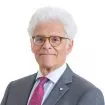A summary of the day's activities of Wednesday, September 9, follows.
Federal Government Relief Measures
Prime Minister Justin Trudeau announced investments of up to nearly $221 million in partnership with Canadian financial institutions – including up to nearly $93 million from the Government of Canada over the next four years – to launch Canada's first-ever Black Entrepreneurship Program.
Statement of Prime Minister Justin Trudeau
Prime Minister Justin Trudeau announced the launch of the Black Entrepreneurship Program at HXOUSE, an incubator and accelerator for creative entrepreneurs cofounded by Canadian pop star The Weekend. Mary Ng, Minister of Small Business, Export and International Trade, and Greg Fergus, MP for Hull-Aylmer and Chair of the Black Caucus of Parliamentarians, joined the Prime Minister.
The new program is designed to help thousands of Black business owners and entrepreneurs across the country recover from the COVID-19 crisis and grow their businesses.
The press release issued by the Prime Minister's Office describes the program's three streams as follows.
- up to $53 million to develop and implement a new National Ecosystem Fund to support Black-led business organizations across the country. It will help Black business owners and entrepreneurs access funding and capital, mentorship, financial planning services, and business training.
- up to $33.3 million in support through the new Black Entrepreneurship Loan Fund that will provide loans of between $25,000 and $250,000 for Black business owners and entrepreneurs. The Government of Canada is also partnering with financial institutions, including RBC, BMO Financial Group, Scotiabank, CIBC, National Bank, TD, Vancity, and Alterna Savings, to make up to $128 million available in additional lending support.
- up to $6.5 million to create and sustain a new Black Entrepreneurship Knowledge Hub that will collect data on the state of Black entrepreneurship in Canada and help identify Black entrepreneurs' barriers to success as well as opportunities for growth. The Hub will be run by Black-led community and business organizations, in partnership with educational institutions.
In response to questions from journalists, the Prime Minister continued to defend his government's response to COVID-19. He repeated many times that the “government is there to help Canadians and the provinces.”
The Prime Minister was also asked if he was ready to make a firm commitment on federal health transfers. He said that he will have discussions with the provinces and territories on this issue. He noted the federal government had already transferred $500 million to the provinces for health care at the beginning of the COVID-19 outbreak and provided another $19 billion through the Safe Restart Agreement with the provinces and territories.
Questions regarding a potential federal election in the fall resurfaced. The Prime Minister repeated on several occasions that he does not want an election. He did, however, point to the mechanics of a minority government to suggest that the Conservative Party of Canada may be posturing for a federal election this fall.
Federal Government Briefing
Erin O'Toole, the new leader of the Conservative Party of Canada (CPC), addressed his caucus for the first time this morning. He rallied his caucus members by saying, “We are coming together again and we are stronger and more united than before.”
Raising the mission statement of the RCAF – “It is through adversity that we reach the stars” – MP O'Toole promised Canadians would see themselves reflected in the CPC. He also committed to show all Canadians that the CPC is a “serious, intelligent, compassionate, and ethical” government in waiting.
Regarding monetary policy, the Bank of Canada issued a press release announcing that it is keeping its key lending rate at 0.25 per cent. The Bank will continue its program of Quantitative Easing (QE) until the recovery is well underway.
In lieu of an in-person update to the media, Dr. Theresa Tam, Canada's Chief Public Health Officer, issued the following statement today:
“There have been 133,748 cases of COVID-19 reported in Canada, including 9,153 deaths. Eighty-eight per cent of people have now recovered. Over the past week, 47,806 people were tested daily, with 1.1% of people testing positive. An average of 618 new cases have been reported daily during the most recent seven days.”
Statement of Ontario Premier Doug Ford and Quebec Premier François Legault
In a news conference held in Mississauga at the conclusion of the first-ever Ontario-Québec Summit, Ontario Premier Doug Ford and Québec Premier François Legault announced their governments agreed to collaborate on accelerating economic recovery and job creation, working towards increasing health care funding sustainability and preparedness, and advancing infrastructure renewal for the people of Ontario and Québec.
Delivering the opening comments, Premier Ford said, “At this critical time our two provinces are standing together, we are standing united. Together, we are sending a clear message of unity and cooperation.”
Premier Ford then commented on the “significance” of the summit. He said, “This is historic. When our two mighty provinces work together nothing can stop us. At this critical time, solidifying this bond is more important than ever before. Together we have more leverage to fight against US protectionism and we have more leverage in negotiating with the federal government. Together, we are a political and economic powerhouse.”
Regarding health care, one of key items on the agenda, Premier Ford underlined the need to push the federal government for “fair, flexible and sustainable funding for health care in this country.” He then added, “Ontario and Quebec we have been on the front line of fighting COVID-19. We need to build a strong health care system and stay prepared for any scenario this fall. We want a fair deal for all provinces. We want a fair deal for all Canadians. That means the federal government needs to step up with an increase in the Canada Health Transfer (CHT). I look forward to discussing this proposal with our provincial partners at the upcoming meeting of Canada's Premiers.”
(Note: Quebec Premier François Legault is the incoming Chair of the Council of the Federation, replacing Saskatchewan Premier Scott Moe. Established in 2003, the Council enables Premiers to work collaboratively to strengthen the Canadian federation by fostering a constructive relationship among the provinces and territories, and with the federal government.)
Quebec Premier François Legault echoed the views of Premier Ford on the importance of Ontario-Québec collaboration. He said, “Ontario and Québec are closer than ever. We have a lot in common. We fight the same pandemic in the same Canadian context. We share the same urgent need to finding a lasting solution to the funding of health care in the context of large deficits. We face the same need to relaunch the economy.” In addition, Premier Legault highlighted that Ontario and Québec share the same need for additional federal infrastructure funding for transit and public transportation.
Health care is a high priority for Premier Legault. He explained that the 80-20 funding formula for health care must be amended to address the structural pressures provinces are facing in the delivery of health care. Provincial health care expenditures of $200 billion consistently outstrip provincial revenues. This structural imbalance is due to the evolution in drugs, technology and the pressures of an aging population on the health care system. Federal funding of $40 billion is no longer sufficient to meet the needs of the provinces.
Premier Legault said the federal government must provide funds for health care on an incremental basis without conditions. He noted, for example, that Ontario and Québec had already begun investing in the modernization of their respective long-term care systems. They do not need the federal government to earmark funding for long-term care.
Both Premiers Legault and Ford stressed that health care is a critical priority to support the relaunch of their economies. A substantial, permanent and ongoing increase in the CHT from the federal government to the provinces and territories is required. They promised to share the amount of the increase once they have had the opportunity to discuss the matter with their provincial and territorial counterparts.
Premier Legault admitted that an increase in the CHT is a political decision, one that Prime Minister Trudeau must ultimately make.
The rolling back of reopening measures due to a rise in new COVID-19 cases was top of mind among journalists. Premier Legault reiterated that Québec's epidemiological data demonstrates that new cases are predominantly linked to private gatherings rather than the opening of pubs and nightclubs. He also reminded journalists that the Progressive 4-Level Regional Alert and Intervention System gives the government the ability to tailor its response to COVID-19 based on level of the alert within a region or a sub-region of Quebec.
Premier Ford reiterated that the public health officers of the province's 35 public health units have the authority to roll-back reopening based on the particular circumstances of their regions. Premier Ford said it would be unfair to impose province-wide restrictions when 16 regions are not reporting news cases of COVID-19.
Regarding COVID-Alert, the national exposure notification app, Premier Legault confirmed the government is holding off recommending the adoption of the app to its citizens for the time being because opposition parties in the National Assembly are of the view that privacy safeguards are lacking.
To continue the progress made over the past two days, Premiers Ford and Legault have agreed to convene an annual meeting.
As mentioned yesterday, the delegation of Ontario Ministers who participated in the summit were: Christine Elliott, Deputy Premier and Minister of Health; Rod Phillips, Minister of Finance; Vic Fedeli, Minister of Economic Development, Job Creation and Trade; Laurie Scott, Minister of Infrastructure; Caroline Mulroney, Minister of Transportation; and Peter Bethlenfalvy, President of the Treasury Board.
The delegation of Québec Ministers who participated in the summit were: Éric Girard, Minister of Finance; Christian Dubé, Minister of Health; Pierre Fitzgibbon, Minister of Economy and Innovation; Sonia LeBel, Chair of the Conseil du Trésor and Minister Responsible for Infrastructure; and François Bonnardel, Minister of Transport.
Elsewhere in Canada
Alberta
Over the Labour Day long weekend, Alberta recorded 465 new COVID-19 cases as well as 5 deaths. Yesterday, this prompted Alberta's Chief Medical Officer of Health Dr. Deena Hinshaw to emphasize that the best way to keep schools safe is to bring down community transmission rates.
As of September 8, the Provincial Court of Alberta's circuit courts started opening for in-person and remote hearings. Traffic court is now open for trials only. Individuals should continue to pay traffic tickets online.
British Columbia
British Columbia recorded 429 new COVID-19 cases and 2 deaths over the Labour Day weekend. There are 1,386 active cases of COVID-19 in the province and 3,063 people under active public health monitoring.
Minister of Health Adrian Dix and British Columbia's Provincial Health Officer Dr. Bonnie Henry announced that all nightclubs and stand-alone banquet halls were ordered closed until further notice. In addition, liquor sales in all bars, pubs and restaurants must cease at 10 p.m. and they must close at 11 p.m., unless they are providing a full meal service, in which case they may stay open but may not serve alcohol until 11 a.m. the following day. Music and background sounds in bars, lounges, pubs and restaurants must be no louder than the volume of a normal conversation.
Melanie Mark, Minister of Advanced Education, Skills and Training reminded post-secondary students that the Here2Talk mental health counselling and referral service is available 24/7 to provide support to students as they navigate post-secondary education and the stress of the COVID-19 pandemic. Launched in April 2020, the free mental health counselling and referral service is available to all post-secondary students in British Columbia.
The content of this article is intended to provide a general guide to the subject matter. Specialist advice should be sought about your specific circumstances.




